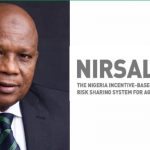...To get all news updates, Join our WhatsApp Group (Click Here)
Also Join our WhatsApp Channel (Click Here)
The United Nations Educational Scientific and Cultural Organisation (UNESCO) recommends every nation in the United Nations Organisation (UN) should allocate 26% percent of their annual budget to education sector. However, the present Nigeria budget allocates 620.5 billion naira to the education sector and this constitutes only 7.05% of the country’s annual budget.
Last week, as I scrolled through my Twitter platform, I witnessed an argument that ensued between two students. One from a private university in Nigeria and the other from a government owned university. The student of the public university mocked and said to the other, “It is almost impossible to get first class in public universities, my third class is better than your first class”. His counterpart, obviously annoyed, stated the present achievements of most private universities in Nigeria and vowed that private universities will soon take over Nigeria because “everything that grows is destined to change”.
The argument between these two parties made me think about how public universities students take pride in their struggles for education in a dysfunctional system. It is as though they do not realise that they are entitled to good educational facilities, comfortable environment for learning and smooth flow of the academic calendar. Basically, the only benefit they enjoy is the availability of the best of teaching personnel.
The dilapidated state of public universities caused by incessant strike actions, unconducive learning environments, libraries with outdated books that cannot be used for assignments not to talk of researches, laboratories with old, spoilt and unrepaired equipment have made students in these institutions slave to the mentality that “you have to suffer to get good education”.
However, as opposed to the system in public universities, the system in private universities offers more to students in terms of facilities, effective funding of their activities, library and laboratory resources, functional teaching and research equipment. Although they might not be entitled to the best teaching personnel, they do not have strikes that elongate their academic calendar and they enjoy the best condition of learning in Nigeria.
Hence, when the private school student in the argument stated “everything that grows is destined to change”, I realized what he meant was the fact that private universities continue to grow in number and prestige in Nigeria. Looking back at the first established private university in Nigeria “Igbinedion University” that was just established in 1999, the number of private universities has grown immensely, they are presently 79 private universities in Nigeria. Opposed to this is the number of public universities that are present in Nigeria, after the establishment of University of Ibadan in 1948. There are 48 public universities in Nigeria which are poorly funded. Also, in terms of prestige, private universities like Covenant University has been ranked number 401 in the ranking of world best universities in 2019. It ranked above its Counterparts University of Ibadan and University of Lagos that successfully made the list.
Thus, considering the rate at which private universities keep growing in number and prestige, the question remains will they become our only hope for quality education in Nigeria? Yes, they will become our only hope, unless drastic measures is taken to revamp Public Universities in Nigeria, the blight that killed public primary schools and secondary school schools will equally kill public universities.
In the next ten to twenty years in Nigeria, in order for public universities to improve their quality in the system. They have to get adequate funds and sound monitoring. However, the rate at which the government of Nigeria do not take education very seriously, these schools may have to be self-sufficient.
I do not advice that they try to get private funding or become private owned because as Walter Lippmann once stated “where all think alike, no one thinks very much”. Hence, I advise that they opt for means to generate revenue for themselves. For instance, the University of Virginia has been able to generate enough revenue for itself by being dedicated to athletic activities. Thus, they average an annually generated revenue of 100 million dollars.
Public universities in Nigeria may not be able follow in the same step as the University of Virginia. However, government should appoint people with business expertise in public universities management to recommend means of generate internal revenues. Such means may include investment in structures such as shopping malls and hotels that will not only attract customers but also sponsors. By so doing, such investments will aid to generate funds for Public universities to improve their infrastructures and make them not totally dependent on government for their sole survival.
Despite the increasing rate of the sponsorships and investments of Private Universities, Public Universities are still the panacea for good education in Nigeria and will continue to be, if there is cooperation and resilience between the government and university administrators towards investing in public universities. Against all odds, I believe Public Universities will not get to a state of ramshackle if the government provides proper funding and investments in public universities.
ADESANYA Oluwadara Temiloluwa
University of Ibadan
Department of communication and language art
Faculty of art
You can get every of our news as soon as they drop on WhatsApp ...To get all news updates, Join our WhatsApp Group (Click Here)
Also Join our WhatsApp Channel (Click Here)
















